- Back to Home »
- When God isn't on the guest list
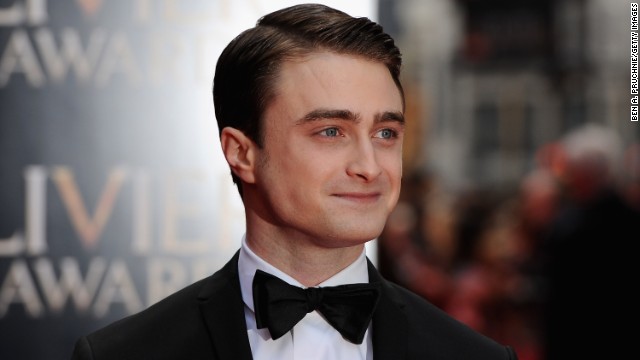 British actor Daniel Radcliffe, known for his role as Harry Potter, declared he was an atheist in a 2009 interview. "I'm an atheist, but I'm very relaxed about it," he said. "I don't preach my atheism, but I have a huge amount of respect for people like Richard Dawkins who do."
British actor Daniel Radcliffe, known for his role as Harry Potter, declared he was an atheist in a 2009 interview. "I'm an atheist, but I'm very relaxed about it," he said. "I don't preach my atheism, but I have a huge amount of respect for people like Richard Dawkins who do." 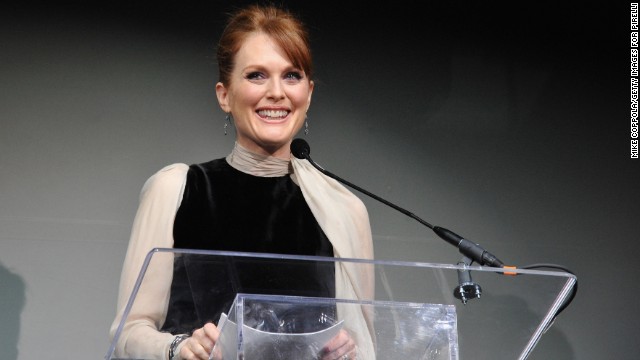 During a 2002 interview on "Inside the Actor's Studio," actress Julianne Moore was asked what she would like to hear God say to her at the gates of heaven. She replied, "Well, I guess you were wrong. I do exist."
During a 2002 interview on "Inside the Actor's Studio," actress Julianne Moore was asked what she would like to hear God say to her at the gates of heaven. She replied, "Well, I guess you were wrong. I do exist." 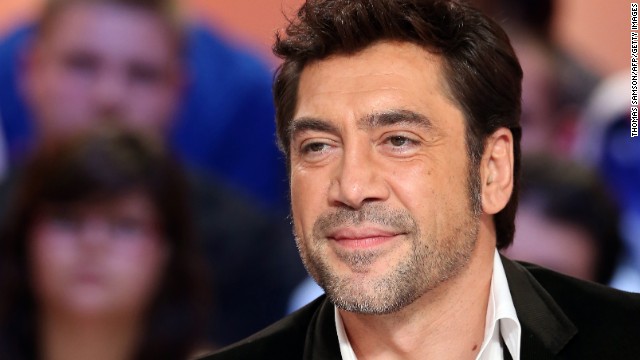 A GQ cover story in 2012 noted that Spanish actor Javier Bardem is an atheist. He is quoted as saying, "I've always said I don't believe in God; I believe in Al Pacino."
A GQ cover story in 2012 noted that Spanish actor Javier Bardem is an atheist. He is quoted as saying, "I've always said I don't believe in God; I believe in Al Pacino." 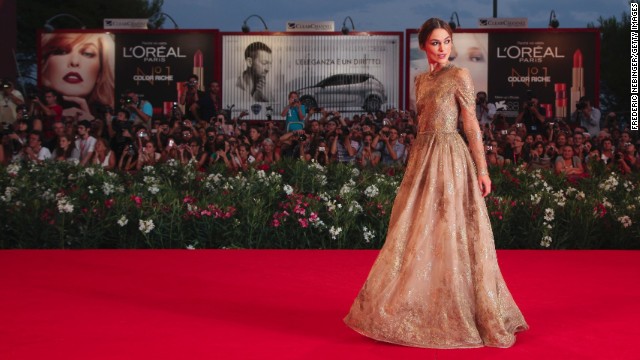 English actress Keira Knightley has joked that she wishes she were Catholic. "If only I wasn't an atheist; I could get away with anything," she said in 2012. "You'd just ask for forgiveness, and then you'd be forgiven."
English actress Keira Knightley has joked that she wishes she were Catholic. "If only I wasn't an atheist; I could get away with anything," she said in 2012. "You'd just ask for forgiveness, and then you'd be forgiven." 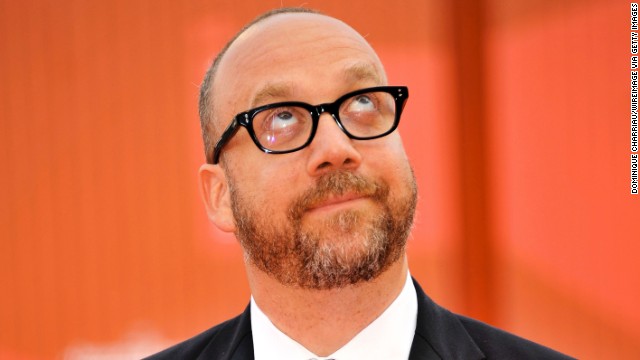 Actor Paul Giamatti calls himself an atheist. In a 2011 interview he said: "My wife is Jewish and I'm fine with my son being raised as a Jew. ... I will talk to my son about my atheism when the time is right."
Actor Paul Giamatti calls himself an atheist. In a 2011 interview he said: "My wife is Jewish and I'm fine with my son being raised as a Jew. ... I will talk to my son about my atheism when the time is right." 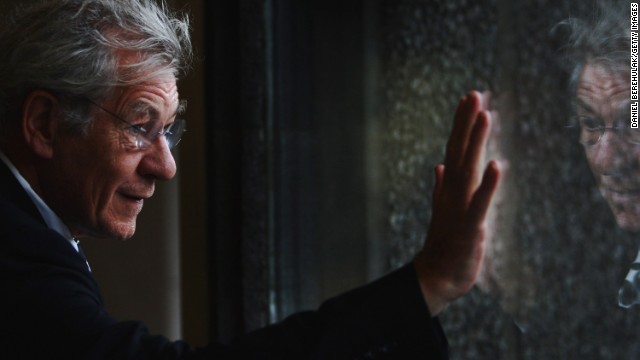 Sir Ian McKellen, best known for his roles as Gandalf in the "Lord of the Rings" trilogy and Magneto in the "X-Men" films, has listed atheism among the causes he cares most about. But he says since coming out as gay in 1988, he has been reluctant to lobby on issues beyond his most urgent concern: "legal and social equality for gay people worldwide."
Sir Ian McKellen, best known for his roles as Gandalf in the "Lord of the Rings" trilogy and Magneto in the "X-Men" films, has listed atheism among the causes he cares most about. But he says since coming out as gay in 1988, he has been reluctant to lobby on issues beyond his most urgent concern: "legal and social equality for gay people worldwide." 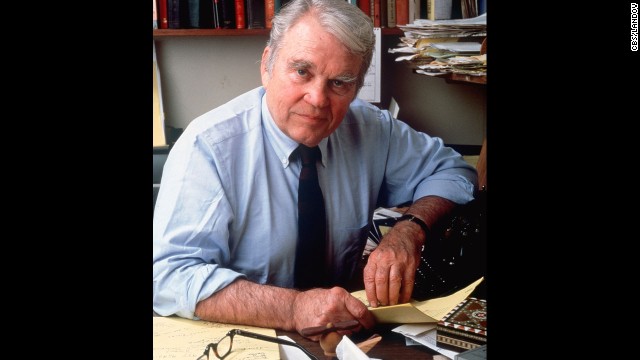 Legendary CBS News commentator Andy Rooney, who died in 2011 at age 92, was outspoken about religion. "I am an atheist," Rooney said at Tufts University in 2004. "I don't understand religion at all. I'm sure I'll offend a lot of people by saying this, but I think it's all nonsense."
Legendary CBS News commentator Andy Rooney, who died in 2011 at age 92, was outspoken about religion. "I am an atheist," Rooney said at Tufts University in 2004. "I don't understand religion at all. I'm sure I'll offend a lot of people by saying this, but I think it's all nonsense." 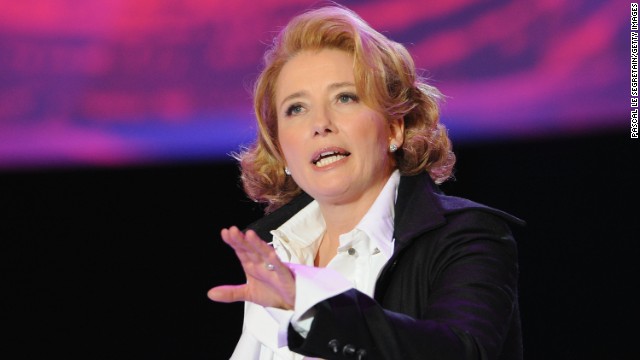 British actress Emma Thompson said in a 2008 interview: "I'm an atheist; I suppose you can call me a sort of libertarian anarchist. I regard religion with fear and suspicion. It's not enough to say that I don't believe in God. I actually regard the system as distressing: I am offended by some of the things said in the Bible and the Quran, and I refute them."
British actress Emma Thompson said in a 2008 interview: "I'm an atheist; I suppose you can call me a sort of libertarian anarchist. I regard religion with fear and suspicion. It's not enough to say that I don't believe in God. I actually regard the system as distressing: I am offended by some of the things said in the Bible and the Quran, and I refute them." 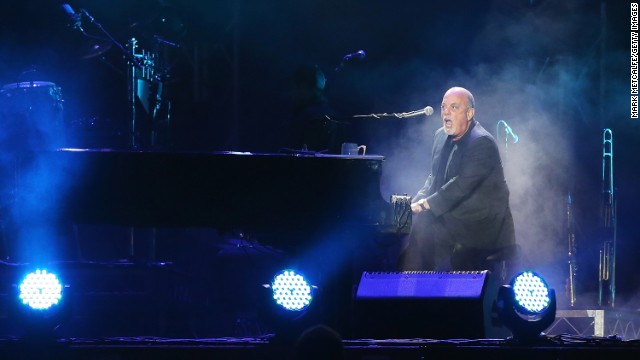 Singer-songwriter Billy Joel reiterated his stance in a 2010 interview with radio host Howard Stern. Asked if he believed in God, Joel replied, "No. I'm an atheist." His song "Only the Good Die Young" includes the line, "I'd rather laugh with the sinners than cry with the saints."
Singer-songwriter Billy Joel reiterated his stance in a 2010 interview with radio host Howard Stern. Asked if he believed in God, Joel replied, "No. I'm an atheist." His song "Only the Good Die Young" includes the line, "I'd rather laugh with the sinners than cry with the saints." 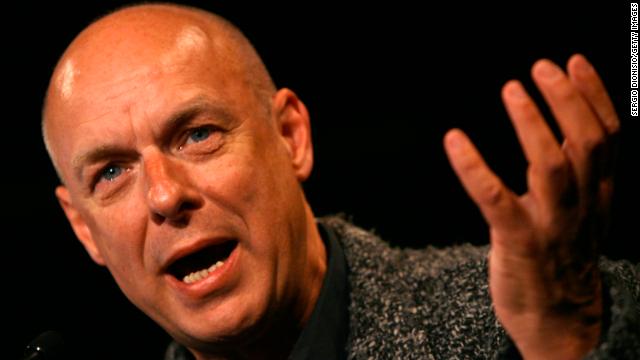 Composer and musician Brian Eno refers to himself as an "evangelical atheist." In 2007 he told the BBC: "What religion says to you, essentially, is that you're not in control. Now that's a very liberating idea. It's quite a frightening idea as well, in some ways."
Composer and musician Brian Eno refers to himself as an "evangelical atheist." In 2007 he told the BBC: "What religion says to you, essentially, is that you're not in control. Now that's a very liberating idea. It's quite a frightening idea as well, in some ways." 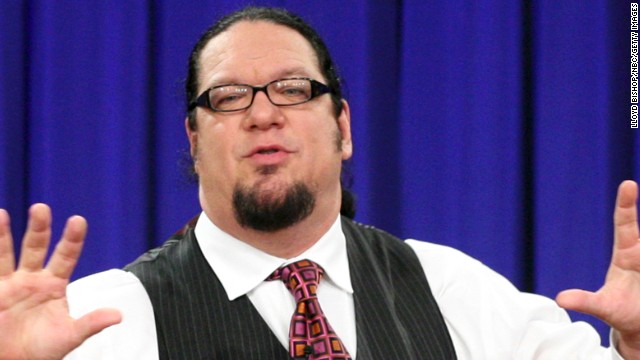 Penn Jillette, half of the Emmy Award-winning magic duo Penn & Teller, wrote the book "God, No! Signs You May Already Be an Atheist and Other Magical Tales." In it he said: "If every trace of any single religion were wiped out and nothing were passed on, it would never be created exactly that way again. There might be some other nonsense in its place, but not that exact nonsense. If all of science were wiped out, it would still be true, and someone would find a way to figure it all out again."
Penn Jillette, half of the Emmy Award-winning magic duo Penn & Teller, wrote the book "God, No! Signs You May Already Be an Atheist and Other Magical Tales." In it he said: "If every trace of any single religion were wiped out and nothing were passed on, it would never be created exactly that way again. There might be some other nonsense in its place, but not that exact nonsense. If all of science were wiped out, it would still be true, and someone would find a way to figure it all out again." 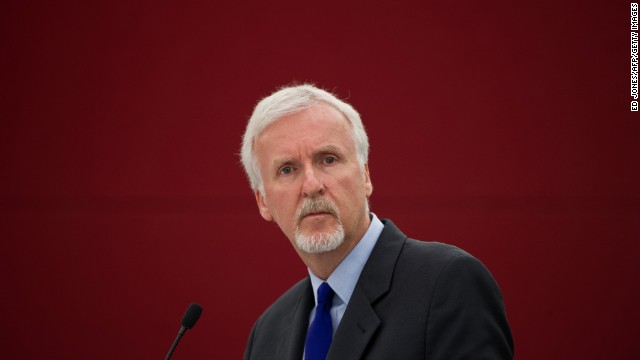 Academy Award-winning director James Cameron, known for films such as "Titanic" and "Avatar," calls himself a "converted agnostic." In "The Futurist," a biography by Rebecca Keegan, he says, "I've sworn off agnosticism, which I now call cowardly atheism." Atheists believe there is no God, while agnostics say it's impossible to prove or disprove God's existence.
Academy Award-winning director James Cameron, known for films such as "Titanic" and "Avatar," calls himself a "converted agnostic." In "The Futurist," a biography by Rebecca Keegan, he says, "I've sworn off agnosticism, which I now call cowardly atheism." Atheists believe there is no God, while agnostics say it's impossible to prove or disprove God's existence. 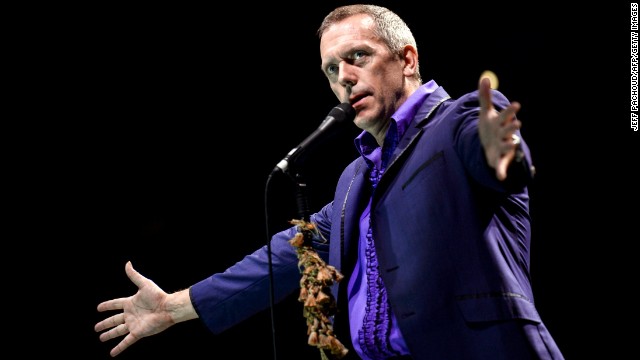 British actor Hugh Laurie, known for his lead role on the medical drama "House," confirmed his atheism in a 2007 interview with The Sunday Telegraph. "I don't believe in God," he said, "but I have this idea that if there were a God, or destiny of some kind looking down on us, that if he saw you taking anything for granted, he'd take it away."
British actor Hugh Laurie, known for his lead role on the medical drama "House," confirmed his atheism in a 2007 interview with The Sunday Telegraph. "I don't believe in God," he said, "but I have this idea that if there were a God, or destiny of some kind looking down on us, that if he saw you taking anything for granted, he'd take it away." 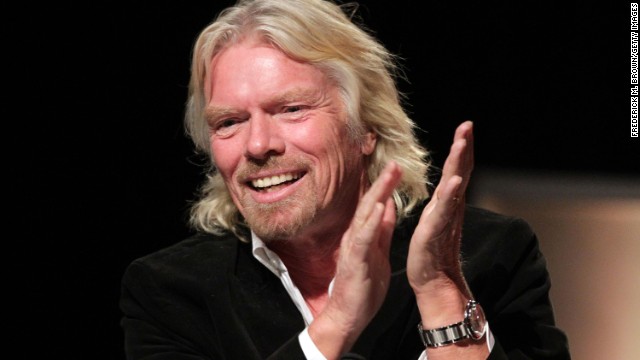 British entrepreneur and Virgin Group founder Sir Richard Branson said in a 2011 interview with CNN's Piers Morgan that he believes in evolution and the importance of humanitarian efforts, but not in the existence of God. "I would love to believe," he said. "It's very comforting to believe."
British entrepreneur and Virgin Group founder Sir Richard Branson said in a 2011 interview with CNN's Piers Morgan that he believes in evolution and the importance of humanitarian efforts, but not in the existence of God. "I would love to believe," he said. "It's very comforting to believe." 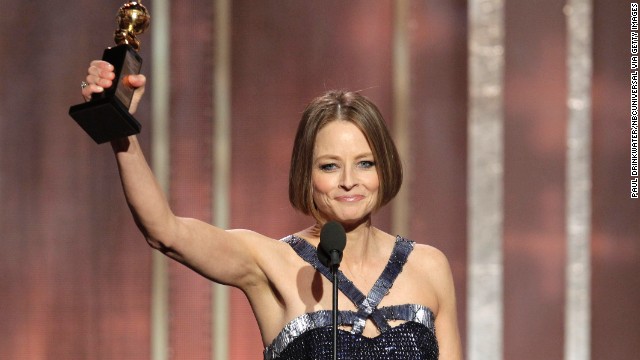 Actress Jodie Foster told Entertainment Weekly in 2007 that she was an atheist. She added: "But I absolutely love religions and the rituals. Even though I don't believe in God, we celebrate pretty much every religion in our family with the kids."
Actress Jodie Foster told Entertainment Weekly in 2007 that she was an atheist. She added: "But I absolutely love religions and the rituals. Even though I don't believe in God, we celebrate pretty much every religion in our family with the kids." 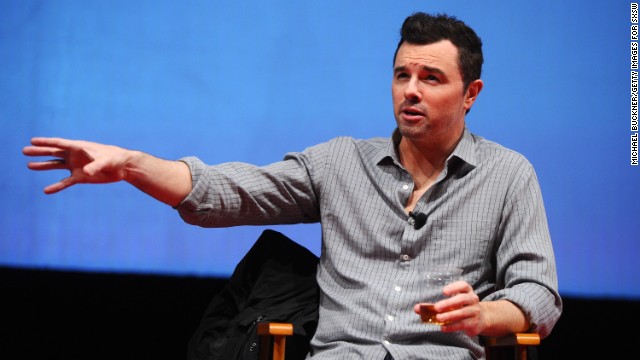 Seth MacFarlane, creator of the animated series "Family Guy," has become vocal about his atheism. Asked about it in a 2009 interview with Esquire, he said: "It's like the civil-rights movement. There have to be people who are vocal about the advancement of knowledge over faith."
Seth MacFarlane, creator of the animated series "Family Guy," has become vocal about his atheism. Asked about it in a 2009 interview with Esquire, he said: "It's like the civil-rights movement. There have to be people who are vocal about the advancement of knowledge over faith." 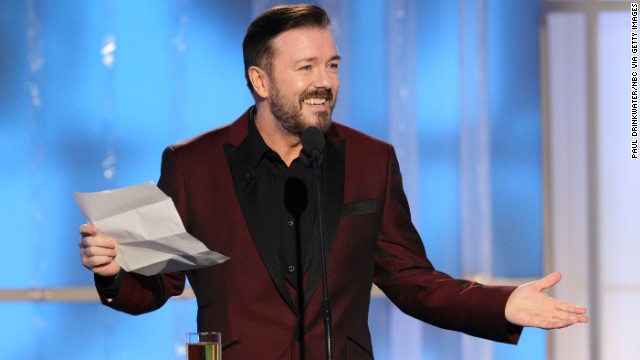 Ricky Gervais, creator of the British series "The Office," wrote about his religious journey in an essay published in 2010 by the Wall Street Journal. "Wow. No God. If mum had lied to me about God, had she also lied to me about Santa? Yes, of course, but who cares? The gifts kept coming," he said. "And so did the gifts of my new found atheism. The gifts of truth, science, nature. The real beauty of this world."
Ricky Gervais, creator of the British series "The Office," wrote about his religious journey in an essay published in 2010 by the Wall Street Journal. "Wow. No God. If mum had lied to me about God, had she also lied to me about Santa? Yes, of course, but who cares? The gifts kept coming," he said. "And so did the gifts of my new found atheism. The gifts of truth, science, nature. The real beauty of this world." 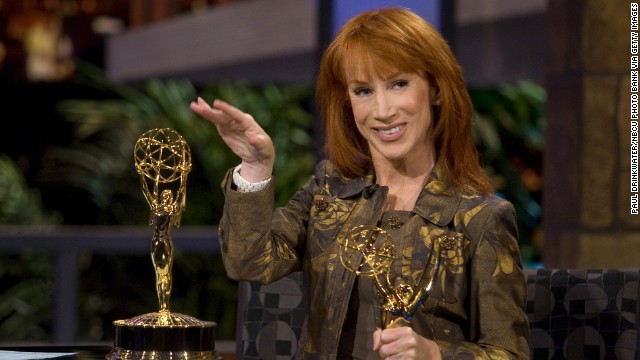 Comedian Kathy Griffin, a self-described "militant atheist," made her position clear with a controversial Emmy Award acceptance speech in 2007. "A lot of people come up here and they thank Jesus for this award," she said. "I want you to know that no one had less to do with this award than Jesus. He didn't help me a bit. ... So all I can say is suck it, Jesus. This award is my god now."
Comedian Kathy Griffin, a self-described "militant atheist," made her position clear with a controversial Emmy Award acceptance speech in 2007. "A lot of people come up here and they thank Jesus for this award," she said. "I want you to know that no one had less to do with this award than Jesus. He didn't help me a bit. ... So all I can say is suck it, Jesus. This award is my god now." 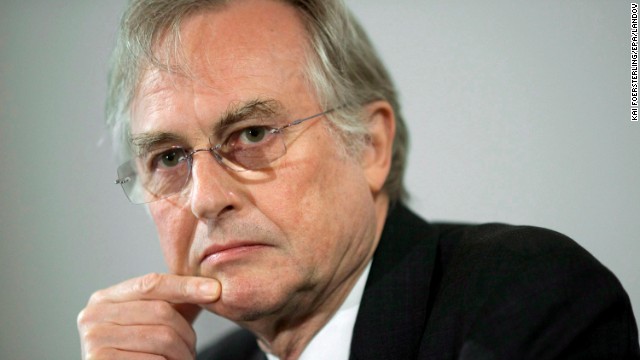 British evolutionary biologist and prominent atheist Richard Dawkins' views about religion were summed up in his bestselling book "The God Delusion." In it he wrote: "We are all atheists about most of the gods that humanity has ever believed in. Some of us just go one god further." His coming-out campaign suggests atheists should be proud rather than apologetic.
British evolutionary biologist and prominent atheist Richard Dawkins' views about religion were summed up in his bestselling book "The God Delusion." In it he wrote: "We are all atheists about most of the gods that humanity has ever believed in. Some of us just go one god further." His coming-out campaign suggests atheists should be proud rather than apologetic. 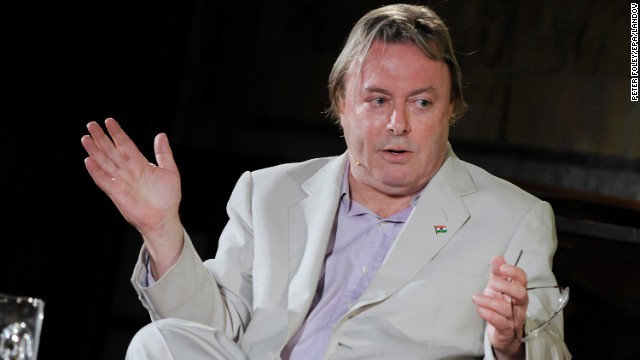 Christopher Hitchens, a British author and antitheist who died in 2011 at age 62, viewed religion as "the main source of hatred in the world." In his book "God is Not Great," Hitchens wrote: "There are days when I miss my old convictions as if they were an amputated limb. But in general I feel better, and no less radical, and you will feel better too, I guarantee, once you leave hold of the doctrinaire and allow your chainless mind to do its own thinking."
Christopher Hitchens, a British author and antitheist who died in 2011 at age 62, viewed religion as "the main source of hatred in the world." In his book "God is Not Great," Hitchens wrote: "There are days when I miss my old convictions as if they were an amputated limb. But in general I feel better, and no less radical, and you will feel better too, I guarantee, once you leave hold of the doctrinaire and allow your chainless mind to do its own thinking." 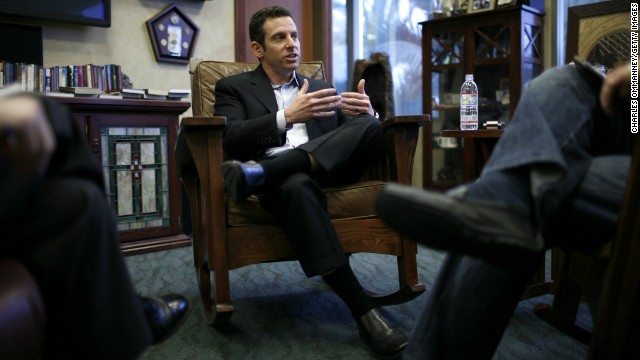 Neuroscientist and author Sam Harris is a well-known atheist and a vocal critic of religion. In "The End of Faith," he wrote: "We will see that the greatest problem confronting civilization is not merely religious extremism: rather, it is the larger set of cultural and intellectual accommodations we have made to faith itself."
Neuroscientist and author Sam Harris is a well-known atheist and a vocal critic of religion. In "The End of Faith," he wrote: "We will see that the greatest problem confronting civilization is not merely religious extremism: rather, it is the larger set of cultural and intellectual accommodations we have made to faith itself." 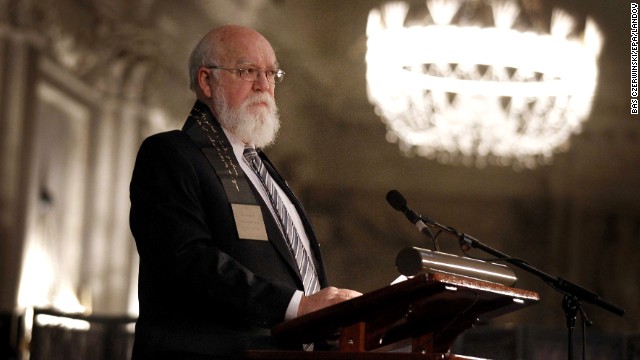 Philosopher Daniel Dennett is referred to as one of the "Four Horsemen of New Atheism," along with Richard Dawkins, Christopher Hitchens and Sam Harris. In his book "Breaking the Spell," Dennett said: "You don't get to advertise all the good that your religion does without first scrupulously subtracting all the harm it does and considering seriously the question of whether some other religion, or no religion at all, does better."
Philosopher Daniel Dennett is referred to as one of the "Four Horsemen of New Atheism," along with Richard Dawkins, Christopher Hitchens and Sam Harris. In his book "Breaking the Spell," Dennett said: "You don't get to advertise all the good that your religion does without first scrupulously subtracting all the harm it does and considering seriously the question of whether some other religion, or no religion at all, does better." 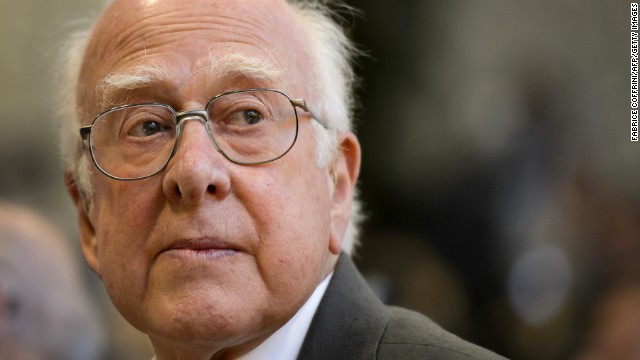 British physicist Peter Higgs is among those credited with the theory behind the Higgs boson, a subatomic particle long thought to be a fundamental building block of the universe. In an interview with the BBC earlier this year, he expressed his discomfort with people calling it the "God particle." He said: "First of all, I'm an atheist. The second thing is I know that name (started as) a kind of joke and not a very good one. ... It's so misleading."
British physicist Peter Higgs is among those credited with the theory behind the Higgs boson, a subatomic particle long thought to be a fundamental building block of the universe. In an interview with the BBC earlier this year, he expressed his discomfort with people calling it the "God particle." He said: "First of all, I'm an atheist. The second thing is I know that name (started as) a kind of joke and not a very good one. ... It's so misleading." 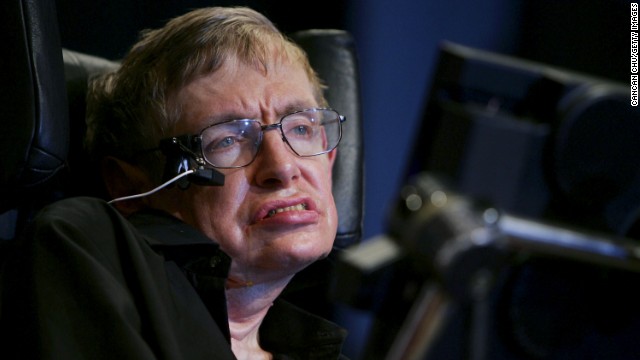 In his book "The Grand Design," theoretical physicist Stephen Hawking asserts that God did not create the universe. "Spontaneous creation is the reason why there is something rather than nothing, why the universe exists, why we exist," he wrote. "It is not necessary to invoke God to light the blue touch paper and set the universe going."
In his book "The Grand Design," theoretical physicist Stephen Hawking asserts that God did not create the universe. "Spontaneous creation is the reason why there is something rather than nothing, why the universe exists, why we exist," he wrote. "It is not necessary to invoke God to light the blue touch paper and set the universe going." 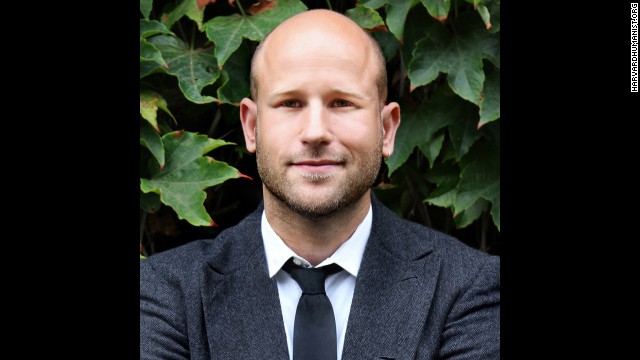 Greg Epstein is the humanist chaplain at Harvard University and the author of the New York Times bestseller "Good Without God." In the introduction, he wrote: "This is not a book about whether one can be good without God, because that question does not need to be answered -- it needs to be rejected outright. To suggest that one can't be good without belief in God is not just an opinion, a mere curious musing -- it is a prejudice."
Greg Epstein is the humanist chaplain at Harvard University and the author of the New York Times bestseller "Good Without God." In the introduction, he wrote: "This is not a book about whether one can be good without God, because that question does not need to be answered -- it needs to be rejected outright. To suggest that one can't be good without belief in God is not just an opinion, a mere curious musing -- it is a prejudice." 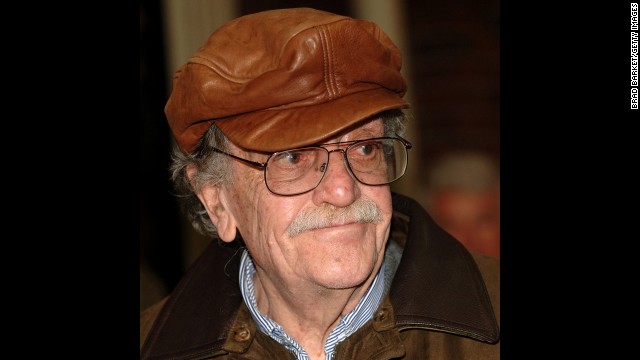 Kurt Vonnegut, author of "Slaughterhouse Five" and "Cat's Cradle," rejected supernatural beliefs. In his autobiographical book, "Palm Sunday," he examines how he was affected by studying anthropology. "It confirmed my atheism, which was the religion of my fathers anyway," he said. Vonnegut died at age 84 in 2007.
Kurt Vonnegut, author of "Slaughterhouse Five" and "Cat's Cradle," rejected supernatural beliefs. In his autobiographical book, "Palm Sunday," he examines how he was affected by studying anthropology. "It confirmed my atheism, which was the religion of my fathers anyway," he said. Vonnegut died at age 84 in 2007. 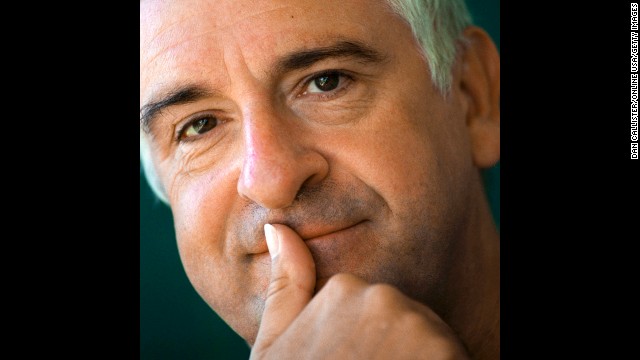 Douglas Adams, who wrote "The Hitchhiker's Guide to the Galaxy," was a committed atheist. In his book "The Salmon of Doubt" he satirically imagined a puddle thinking: "This is an interesting world I find myself in -- an interesting hole I find myself in -- fits me rather neatly, doesn't it? In fact it fits me staggeringly well, must have been made to have me in it!' Adams died in 2001. He was 49.
Douglas Adams, who wrote "The Hitchhiker's Guide to the Galaxy," was a committed atheist. In his book "The Salmon of Doubt" he satirically imagined a puddle thinking: "This is an interesting world I find myself in -- an interesting hole I find myself in -- fits me rather neatly, doesn't it? In fact it fits me staggeringly well, must have been made to have me in it!' Adams died in 2001. He was 49. 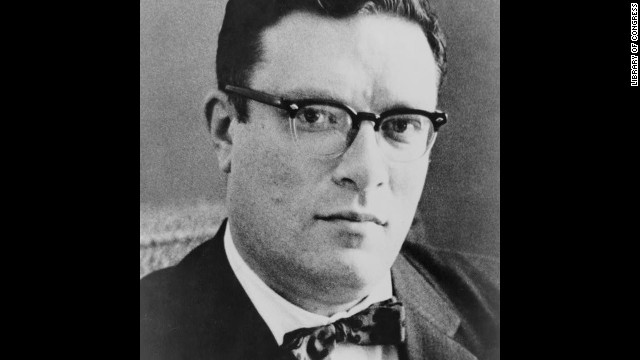 Science-fiction writer Isaac Asimov wrote in his autobiography: "If I were not an atheist, I would believe in a God who would choose to save people on the basis of the totality of their lives and not the pattern of their words. I think he would prefer an honest and righteous atheist to a TV preacher whose every word is God, God, God, and whose every deed is foul, foul, foul." He died in 1992 at age 72.
Science-fiction writer Isaac Asimov wrote in his autobiography: "If I were not an atheist, I would believe in a God who would choose to save people on the basis of the totality of their lives and not the pattern of their words. I think he would prefer an honest and righteous atheist to a TV preacher whose every word is God, God, God, and whose every deed is foul, foul, foul." He died in 1992 at age 72. 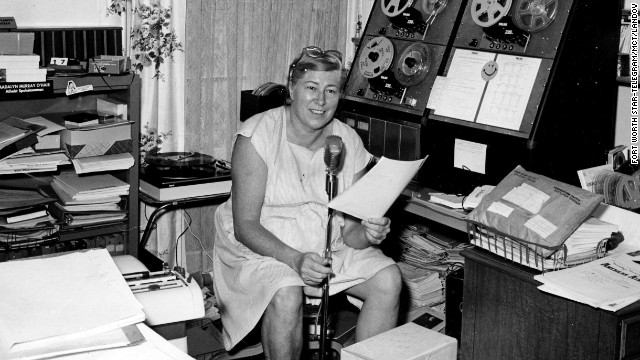 Madalyn Murray O'Hair, who was murdered in 1995 at age 76, was an atheist activist. She founded the American Atheists and served as the organization's president from 1963 to 1986. She is perhaps best known for her role in the 1963 Supreme Court ruling that ended Bible reading in public schools. Life magazine once called her "the most hated woman in America."
Madalyn Murray O'Hair, who was murdered in 1995 at age 76, was an atheist activist. She founded the American Atheists and served as the organization's president from 1963 to 1986. She is perhaps best known for her role in the 1963 Supreme Court ruling that ended Bible reading in public schools. Life magazine once called her "the most hated woman in America." 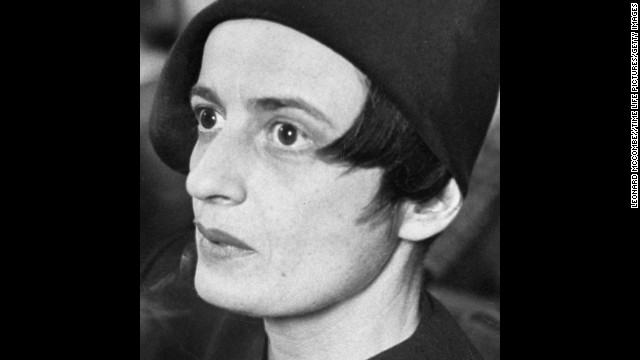 Ayn Rand, author of "The Fountainhead" and "Atlas Shrugged," was an atheist and an opponent of religion. In her book "The Voice of Reason" she criticized President Ronald Reagan and his administration for trying "to take us back to the Middle Ages, via the unconstitutional union of religion and politics." She died in 1982 at age 77.
Ayn Rand, author of "The Fountainhead" and "Atlas Shrugged," was an atheist and an opponent of religion. In her book "The Voice of Reason" she criticized President Ronald Reagan and his administration for trying "to take us back to the Middle Ages, via the unconstitutional union of religion and politics." She died in 1982 at age 77. 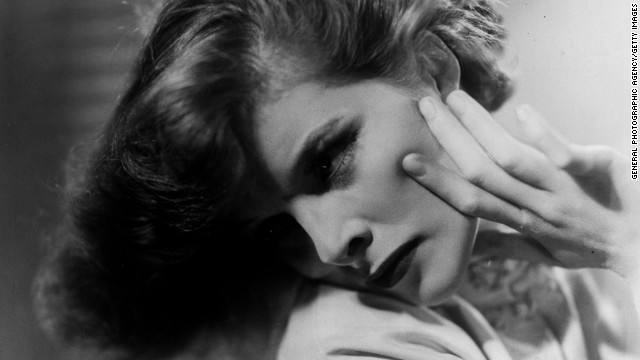 Katharine Hepburn was a four-time Academy Award winner whose career spanned six decades. In a 1991 interview with Ladies' Home Journal, she said: "I'm an atheist, and that's it. I believe there's nothing we can know except that we should be kind to each other and do what we can for each other." She died in 2003. She was 96. Related photos: 'Born-again' celebrities
Katharine Hepburn was a four-time Academy Award winner whose career spanned six decades. In a 1991 interview with Ladies' Home Journal, she said: "I'm an atheist, and that's it. I believe there's nothing we can know except that we should be kind to each other and do what we can for each other." She died in 2003. She was 96. Related photos: 'Born-again' celebrities 
1

2

3

4

5

6

7

8

9

10

11

12

13

14

15

16

17

18

19

20

21

22

23

24

25

26

27

28

29

30

31
- Joseph and Fiona Long deliberately excluded religious texts from their wedding
- Experts say it's important to let religious family members know that the event will be secular
- Couples need to prepare for the possibility that not everyone will approve
- "I like that our wedding is going to be focused on us and our love," said one atheist bride
(CNN) -- All the traditional elements were in place for Joseph and Fiona Long's 2009 New Year's Eve wedding.
She wore a white dress; he wore a tuxedo and her family wore kilts in honor of her Scottish heritage. After they exchanged vows and rings and sealed the deal with a kiss, an officiant in a black robe pronounced them husband and wife. Then, they dined and danced the night away at an Atlanta country club with their closest friends and loved ones, culminating in a midnight confetti drop.
Missing from the guest list: God.
The Longs are atheists who did not want gods or religious texts involved in their marriage celebration. But apart from the non-church setting, the only hint at an deliberately non-religious wedding was contained within their vows and readings. These included selections from Shakespeare, Robert Burns and the Massachusetts Supreme Court ruling on same-sex marriage, which they felt "beautifully expressed the social and secular significance of marriage without any appeal to religion," said Joseph Long, a lawyer in Tampa, Florida.
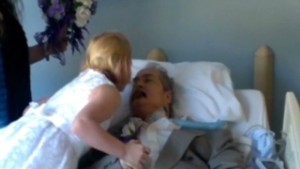 Dying dad's present to 10-year-old girl
Dying dad's present to 10-year-old girl  A bride's bittersweet reunion
A bride's bittersweet reunion "We felt it made the point well that you can have the sanctity of marriage without having to fit into a particular group," he said. "It basically states that marriage is extremely important in society for a variety of reasons, regardless of what someone's god thinks about it."
As secularism continues to rise in the United States, more couples like the Longs are deviating from a traditional wedding blueprint that includes prayers, blessings and biblical passages.
"A secular wedding can be exactly like a religious wedding with two key differences: no mention of any deities and no recitation of supposedly sacred texts," said David G. McAfee, author of "Mom, Dad, I'm an Atheist: The Guide to Coming Out as a Non-Believer and Disproving Christianity and other Secular Writings."
"Many secular weddings have vows, flowers, rings, a reception, a kiss at the end," he continued. "Although most religions have incorporated marriage rules and ceremonies into their faiths, the act of marriage itself is not a religious one; it's a human one."
Venues, readings and vows are just some considerations for atheist couples or couples planning secular weddings. Others struggle with how to break the news to relatives or meet their demands, especially if those loved ones are helping pay for it.
Some couples provide relatives with opportunities to say a few words within set parameters during the ceremony or reception, said Ed Buckner, former president of American Atheists and current chair of the Atlanta Freethought Society. He has performed several atheist weddings over the past decade and emphasizes that it's important to talk about it ahead of time, openly and honestly.
"You need to stop and think about what you want to accomplish. Are you trying to publicly commit to a lifelong union with your partner on your terms, or do you want to please others?" he said.
"I would argue that if you don't believe in God and have God blessing the celebration, you're participating in a sham. But, there are ways to to acknowledge God for others, if that's what you want," Buckner advised.
Give fair warning
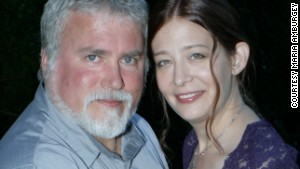
Buying a home was more important to Wendy Rank and her fiance than spending big bucks on a wedding. Instead, they went to a justice of the peace in September "for the official stuff" and held a "picnic wedding" in their backyard later in the day. Her mother paid for catering while more local guests brought side dishes.
"We wanted to get married, but we're not really comfortable with doing it in a church and all that stuff," Rank said. "We're introverts, so we didn't want a big wedding. Just a few friends and family. This way, we had a wedding and a housewarming party."
They wanted to keep it simple and inexpensive for everyone. Rank comes from a family of believers, so she felt like she needed to warn them on the wedding invitation with a message to the effect of: "This is a small, nontraditional secular service. If you're comfortable with that, we'd love to have you."
Most relatives ended up coming, though no one who didn't show up explicitly cited the secular event as the reason. "We wanted to put it out there so no one would book a flight and fly 3,000 miles expecting a pastor and a ceremony."
It worked out for the guests as well; several of her mother's religious friends said they enjoyed the wedding it because it was "short and sweet." The mothers of the newlyweds did a reading from Calvin and Hobbes before the couple exchanged rings and planted a tree -- their twist on a unity candle.
"No one said anything or seemed to or care that it was secular or atheist wedding," said Rank, who lives outside Nashville, Tennessee. "It was a perfect day."
Elope now, wedding later
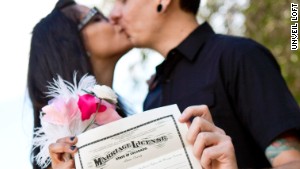
Darren and Sheena Thomas are proud atheists who met on the dating site OK Cupid. Both come from deeply religious families.
As the son of a nondenominational Christian pastor, Darren Thomas grew up going on mission trips and attending church camp. At 16, he stopped going to church and became the black sheep of the family. In his 20s, he started identifying as atheist, meaning he doesn't believe in "anything supernatural: God, the afterlife, ghosts, spirits, supernatural souls, anything like that."
When he came out to his parents, they tried to convince him to return to Christianity for a period of time. Eventually, his father acknowledged that there was nothing he could say or do and decided it was up to God to change his son's mind. He would always love and support his son.
Still, after Darren proposed to Sheena in February, it was hard to tell his father that he didn't want him to perform the wedding.
"I tried to frame it in a positive light; I told him I wanted him to enjoy it without having to work it," said Darren Thomas, a high school English teacher. "But we're pretty passionate about our beliefs, and we want to have a secular service with no mention of God, Jesus, eternity or blessings."
Growing up in West, Texas, Sheena Thomas and her family were pretty much the only people of color, so religion was a way for her to fit in, make friends and be part of a community. In college, she was exposed to a broad swath of faiths, ethnicities and sexual orientations.
Sheena began to question her own beliefs and came to realize that atheism felt right for her. Her family still struggles with this decision; her mother periodically laments that she won't see her daughter in the afterlife, and her grandparents say they are praying for her. She keeps discussion of religion to a minimum.
Their attitude toward religion contributed in part to the couple's decision to elope in July, about a year before they'd originally planned to have a wedding. Everyone knew the couple had gotten engaged in February, but when Sheena Thomas lost her job, they decided to get legally married without the celebration.
"We basically decided that it would be easier to tell everyone after the fact," Darren Thomas said.
The Thomases made it official and then brought a wedding photographer to Denver's Red Rock amphitheater, the site of their first date in 2011.
They still plan on throwing a book-themed wedding in July 2014 to celebrate their relationship and their shared passion. Sheena, a librarian, is working on bouquets and centerpieces of book pages, and the save-the-dates are made from old library due date cards.
The Thomases haven't decided on readings, but they're leaning toward some of their favorite texts related to love and romance. Darren's looking at something from "Jane Eyre" or "Love in the Time of Cholera." For Sheena, it might be Kurt Vonnegut.
"What has bothered me about some weddings is, the focus becomes God and religion when it should be about the two of you and your and relationship," Sheena Thomas said.
"I like that our wedding is going to be focused on us and our love."
Is it important to you that a wedding have religious elements? Please share in the comments below.







